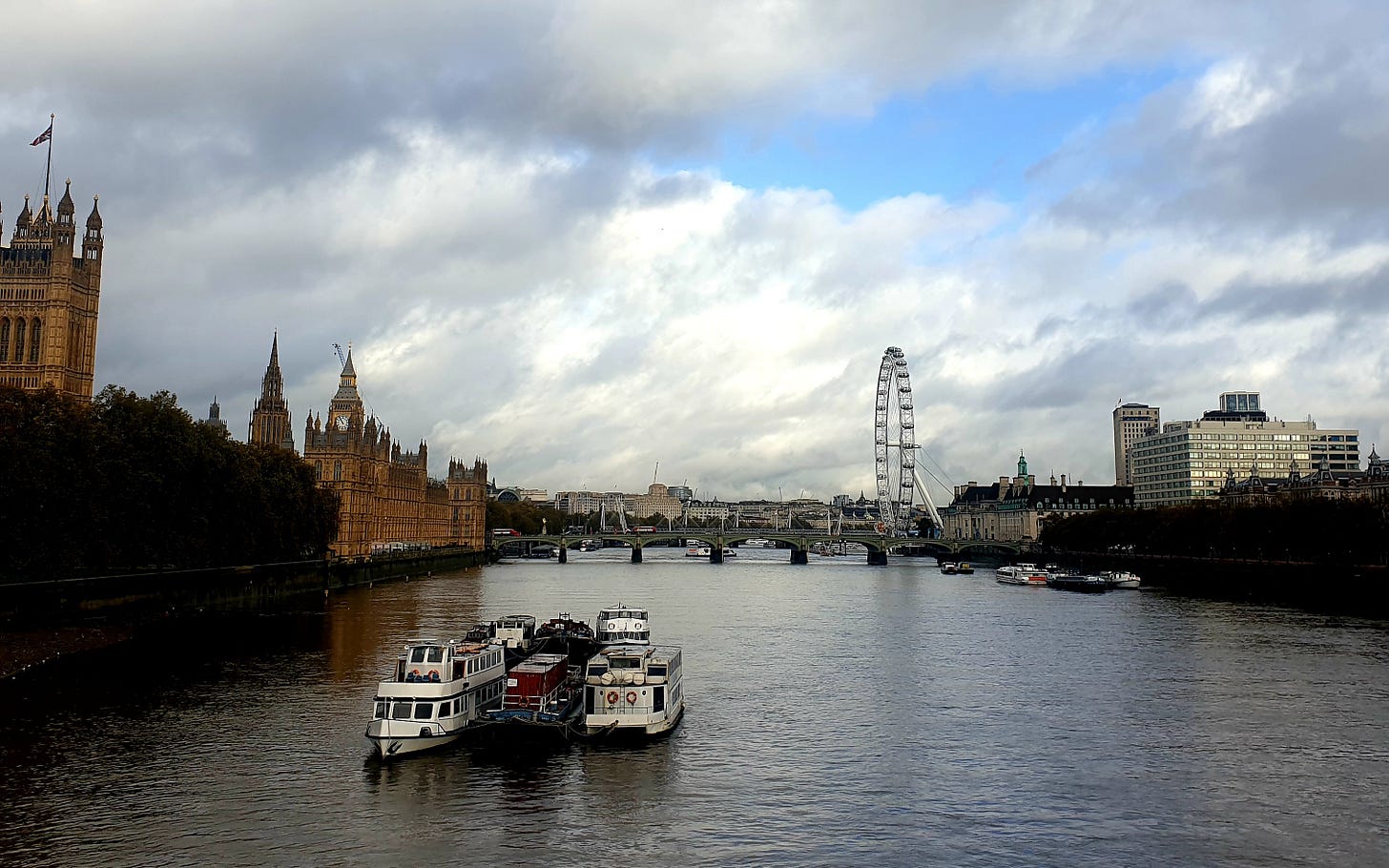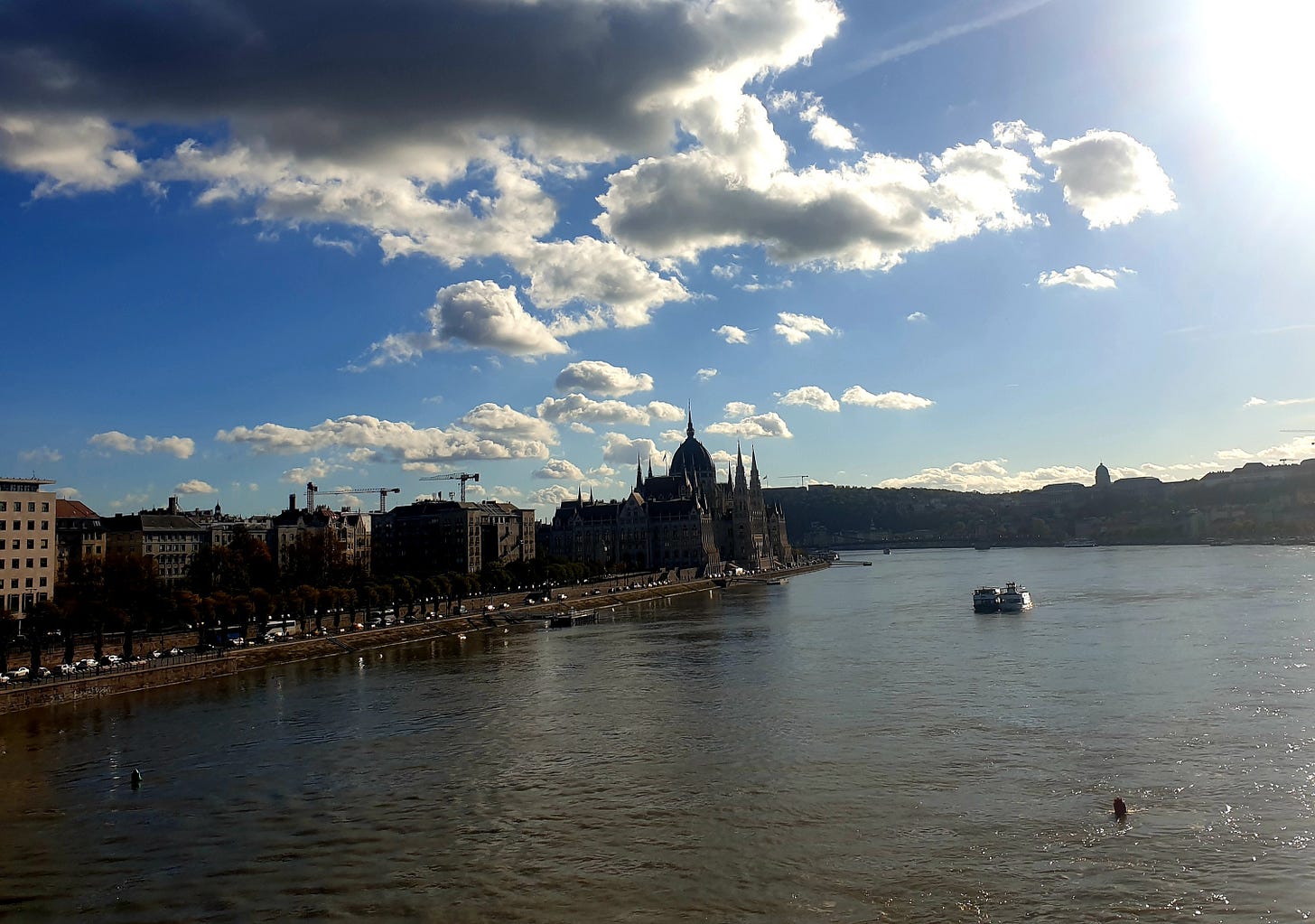November Diary
Hello,
Obligatory shilling. This month, I wrote on Substack about YouTube reactors, right-wing art, the death of Matthew Perry, Andrey Kurkov’s Death and the Penguin, whether Christianity is good for Western civilisation, anti-white activists and why you should vote for the Conservatives (apologies to the concerned emailers who took this last one seriously). I also published my short story “Hero” to mark the two-year anniversary of the publication of my collection Noughties.
As it’s almost Christmas, why not have a THE ZONE special offer? For the next week, with our CHRISTMAS SPECIAL OFFER SPECIAL you can get 25% off a monthly or annual subscription to THE ZONE for the next year.
Anyways, for The Critic, I reviewed Kehinde Andrews’ White Psychosis, wrote about the return of David Cameron, reported from the Hungarian border and mused on moral panics.
I also wrote for The Spectator in praise of Polish snack food.
All Saint’s Day. Poland is far less of a traditional nation than it seemed I arrived ten years ago, but the graveyards were still full on All Saint’s Day as people came to remember the dead. At the risk of being presumptuous, long may we do so. We could go any day, friends have sometimes told me. Sure — but would you?
LDN. Then to London. Every time I visit London I hang out with colleagues and friends and start to wonder why I live in quiet Upper Silesia. It’s so much fun here and the people are so nice. Then I imagine sitting on a crowded underground train heading out of Zone 6 to earn just enough to pay my £1,000,000 rent on my broom cupboard. Besides, it’s lovely to get home.
Danube days. Then to Budapest. (If you’re a new subscriber, I should warn/promise you that on an average month my most exciting adventure is to the local bar.) What a beautiful city it is. I recommend visiting. By coincidence, I was there for the 150th anniversary of the union of Buda and Pest. Bigger is not always better, but in this case I think one has to agree that it was a sound decision.
Snow. What can I add? Snow!
Why do people care so much about Israel and Palestine? I understand why they care, of course. But why do they care so much? This might sound like an insensitive question, given all the hideous death and suffering, but 800 Sudanese people were allegedly killed in Darfur this month and no one in Europe or the US gave a damn. I’ve always thought Daniel Davies of Crooked Timber gave the best answer when he said, basically, that no one really backs a side in a country like Sudan so there is nothing much to talk about:
If you have an opinion about the government of Yemen, you can excoriate them in the strongest possible terms and still be at the betting shop by the time it opens, but if you get into an argument about Israel/Palestine, you can say goodbye to the morning.
Why, to ask a similar question, do Muslim people tend to care so much more about Palestine than, say, oppressed Uyghur Muslims in China. Because of anti-Semitism, in many cases, but also because Israel can be plastered onto pre-existing anti-colonial narratives in a way that the Chinese can’t. Squint and the Israelis look a bit like the British Empire in a different form. What frame of reference can one bring to Chinese irreligion?
What is faith, and what is it for? It was frustrating not to be able to contribute more to the debates about the nature of faith that followed Ayaan Hirsi Ali’s announcement of her conversion. I’ve been working on a longer project on the subject and can’t give everything away. That said, biased as I am as his editor, I thought Jacob Phillips had the most eloquent and challenging response:
The civilisational benefits of the Christian religion are mere by-products of the religion itself. Faith is radically uncontrollable, and it is just as active in despair and dereliction as it is in moments of great historical achievement.
Immigration explanations. Migration was in the news a lot this month. Sam Bidwell responded to record British net migration figures:
The result of all of this is frayed social fabric and unsustainable pressure on public services. We won’t fix this problem by fiddling at the margins or obsessing over small boats.
John McGuirk responded to discontent in Ireland:
The Irish ruling class — a term I use to include politicians, most journalists, the majority of academia, our NGO sector, and senior executives in the techy Irish business sector — simply does not much like the electorate, or the population, that they govern.
Therap-for you but not therap-for me. Not everyone needs therapy, writes Freya India, and the watering down of what it even means helps no one:
Not only do I think these online therapy companies are cashing in on how anxious Gen Z is but also how atomised and alone. Teens today hang out less than ever with friends. They are detached from their local communities. Three-quarters of UK kids spend less time outside than prison inmates. Some are spending over 10 hours a day on screens.
I wrote about this subject from a male perspective here.
Charlotte Gill has a Substack. Agree or disagree with Charlotte, she’s always fun and independent-minded. Give her a follow.
A female condition. Not that I’m an expert on the subject — or even anything more than a beginner — but I’ve long thought it peculiar that we shruggingly accept millions of women having awful pain every month as an unavoidable part of life. Octavia Sheepshanks writes about endometriosis:
There is no known cure, just a scattering of treatments, ranging from medication to surgery, designed to alleviate symptoms which range from infertility to excruciating pain. Because the progression of the disease is poorly understood, these medical interventions are unreliable and can be dramatic, with relief from symptoms being short-lived.
Devastating fairness. George Scialabba has long been one of my favourite left-wing commentators and Sam Adler-Bell puts his finger on why:
When Scialabba encounters folly in the arguments of his interlocutors … he does so with an air of disappointment rather than disdain. Put simply, he is fair. And to be treated fairly by George Scialabba, as, for example, Christopher Hitchens was in the pages of n+1 in 2005, can be a far more devastating fate than being treated shabbily by a thousand less scrupulous critics.
I’d like to think I can approach devastating fairness, though I’m sure I’ve served up feeble partiality before.
Have a lovely month,
Ben






We care about that which we are told to care about.
Those that only care about power tell us what to care about.
Those with no power or hope of power control their own cares.